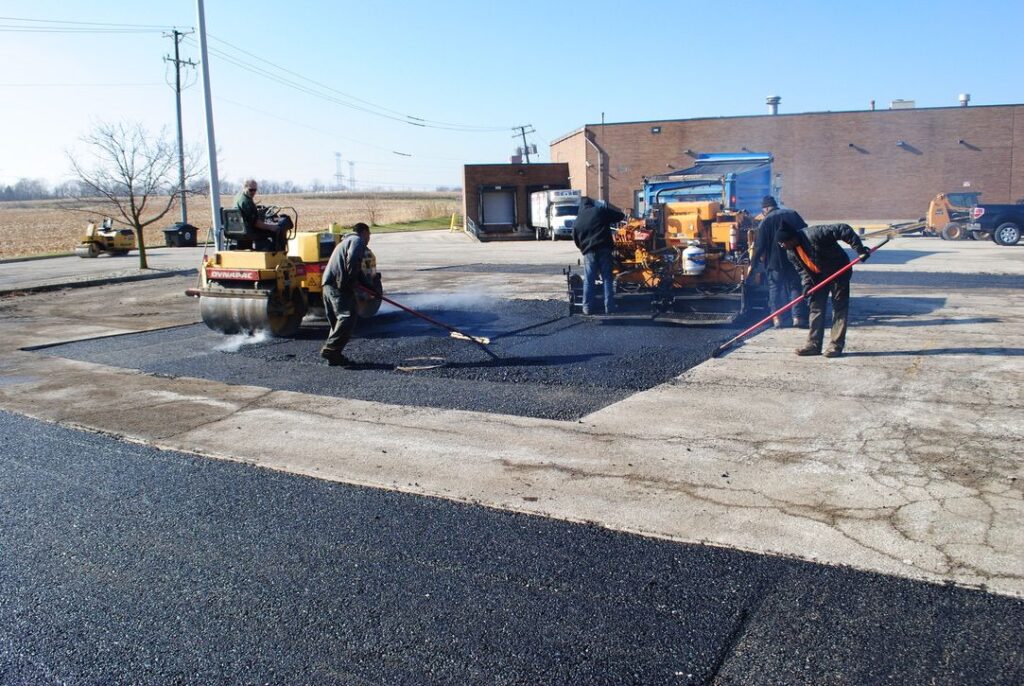People have been perpetrating scams for centuries, and they will likely continue to do so for many more years. Scam artists may embrace new technologies to reach their targets; after all, there were no telephone scams in the early 1800s, and internet scams have only been around for a few decades. Unfortunately, the construction industry has always had its share of scam artists. There are roofing scams, siding scams, and asphalt paving scams. Of these three, paving scams are among the easiest to detect if you know the warning signs.
What Is the First Sign of an Asphalt Paving Scam?
One of the earliest examples of a construction scam occurred in the 1820s when a native of Scotland named Gregor MacGregor successfully sold land in a country that did not exist. MacGregor convinced investors that he was using their investments to build houses, but those were also nonexistent.
Psychological studies have shown that MacGregor and other successful con artists tend to use two persuasive tactics. First, they do everything they can to make their proposition more attractive to their target. Next, they do everything they can to overcome the target’s concerns by deflecting or dismissing the target’s objections. Commercial asphalt paving scammers still use these two persuasive tactics, so you need to recognize their methods.
What Are Some Specific Warning Signs of Asphalt Paving Scams?
Whether you need an asphalt overlay or new asphalt paving in Chicago, recognizing the methods that scammers use can help you avoid their scams. As discussed in the above section, they will try to make their proposal more attractive and your objections less important. More specifically, a paving contractor in Chicago who is attempting a scam will use one or more of the following ploys.
1. Scammers will create a sense of urgency. This usually manifests as either time pressure or scarcity. One example is a paving contractor who just shows up one afternoon, claims to have asphalt left over from a job that morning, and offers to patch the potholes in your parking lot at a deep discount. However, you need to agree to the work immediately, and the contractor implies that once the excess asphalt is gone, the work will be much more expensive. In this scenario, the scammer uses both time pressure and the illusion of scarcity, but there are other red flags. First of all, reputable commercial asphalt paving companies do not just show up to offer their services. They are too busy responding to requests initiated by their customers. Furthermore, contractors rarely misjudge the amount of asphalt needed for a job, so they seldom have much left over. Even if they did, it would not be hot enough to use successfully hours later. The third red flag is the deep discount. Every reputable paving contractor in Chicago pays roughly the same price for asphalt. Deep discounts are only possible if contractors are cutting corners or breaking the law. For example, they may not carry any type of business insurance, including workers’ compensation.
2. Scammers often use a tactic known as incremental commitment. First, they try to make their targets like them. Next, they ask a target to commit to something small. In a paving scam, this could be as simple as asking your permission to perform a free assessment of your parking lot. Although legitimate contractors normally offer free pavement assessments, they do so after a customer requests it, and they will be happy to have you accompany them during the inspection. Again, contractors who just show up should be viewed with suspicion. In addition, if they want to conduct the assessment by themselves, you should be suspicious.
3. Unlike legitimate contractors, scammers prefer to be extremely vague about their experience, office address, and other pertinent information. You may notice that their truck does not have any markings, or it may have plates issued in another state. Furthermore, they will likely not put anything in writing; if they do, it will probably be just one or two dollar amounts on a plain piece of paper.
4. Scammers will present themselves as experts, and they frequently use their self-proclaimed expertise to scare their targets. Because many commercial property owners are not paving experts, scammers often use their lack of knowledge against them. For example, scammers might tell a target that there is no way to repair a small area of alligatored asphalt, so the entire parking lot will need to be rebuilt before it suffers a catastrophic failure. You can protect yourself by doing your own research and obtaining written quotes from several contractors.
5. Scammers attempt to prey on a target’s need or desire to save money or achieve greater status. When budgets are tight, saving money may be of great importance. Saving the company money could also reflect positively on a property manager. However, falling for a scam will cost you money, and it will not create the desired impression among owners or stakeholders.
Black Hawk Paving is a family-owned paving company that has been in business since 1975. Our services include asphalt paving and repair, asphalt milling, parking lot striping, hot crack sealing and routing, and asphalt sealcoating. We also offer concrete flatwork, car stops, concrete curbing, excavation and site grading, traffic signage, and sewer repairs. We have an exemplary reputation for outstanding customer service and exceptional workmanship. To request a free quote, submit the online form, email Info@BlackHawkPaving.com, or call 708-479-0400.


